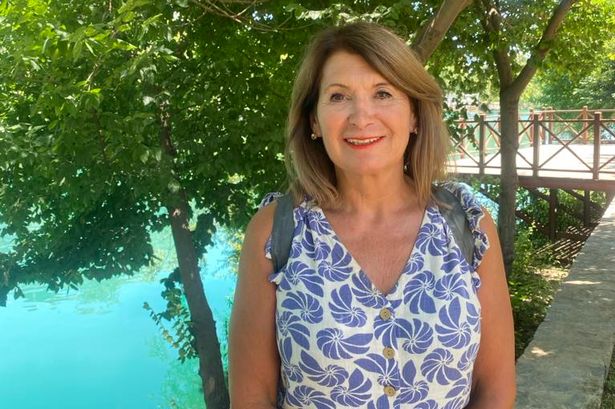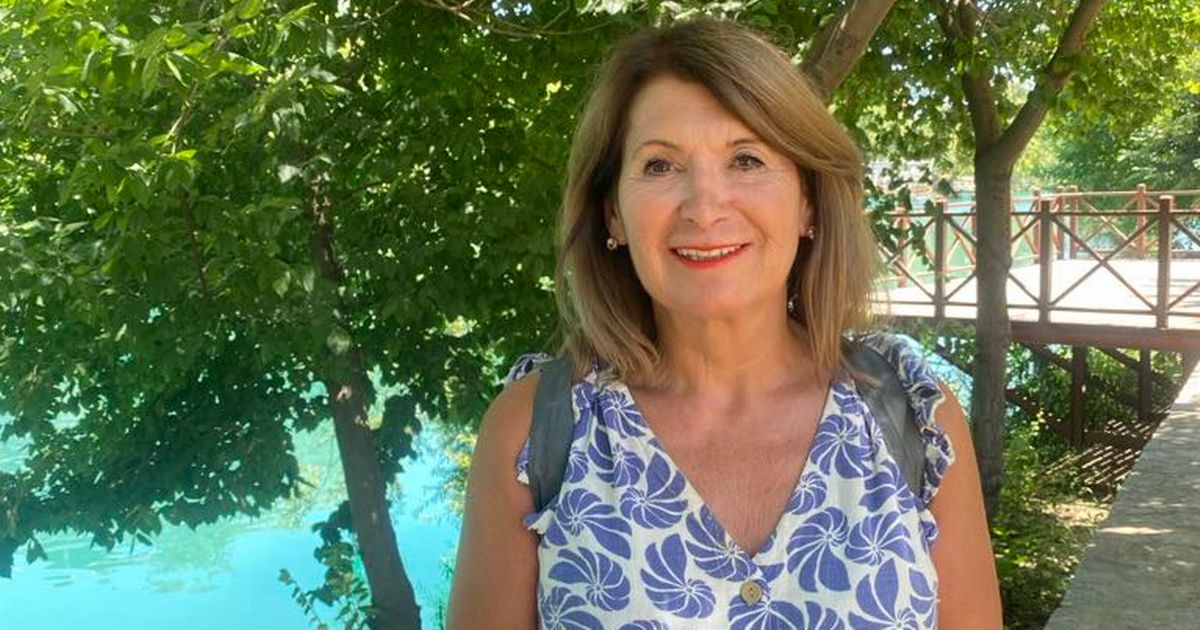Karen Fletcher travelled to North Africa earlier this month Karen Fletcher from Aigburth(Image: Karen Fletcher)
Karen Fletcher from Aigburth(Image: Karen Fletcher)
A woman from Liverpool says she is “traumatised” after what happened during a pro-Palestinian demonstration in Egypt. 61-year-old Karen Fletcher, from Aigburth, had travelled to the north African country earlier this month to march through the Sinai Desert to the border with Gaza with thousands of other activists. Their aim was to put pressure on the Israeli government to allow much-needed aid into Gaza.
Karen said that, on Friday June 13, she and four other protestors were in a taxi from Cairo on their way to the city of Al Arish, where the march was due to begin, when they were stopped at an Egyptian military checkpoint near Ismailia. Many other people who were also headed to the demonstration were already at the checkpoint when she and her party arrived, and a queue of traffic began to build.
Speaking to the ECHO, Karen said: “There were four of us sharing the taxi on our way to, supposedly, this place called Al Arish, when we were stopped. The military were stopping anyone who wasn’t an Egyptian national and they were taking their passports off them. We were stuck for ages and we’d heard that they were taking passports, so we decided to get out of the taxi.
“We got out because we didn’t want our passports taken – and they weren’t letting anyone through anyway.”
After this, more people began to leave their vehicles, Karen said, adding: “There were just thousands of cars all stuck at this checkpoint. And then, before long, a Palestinian flag came out and people began chanting – and then another flag had come out a bit further along, and next thing there’s flags all coming out and people from around the world, every nationality – from Spain, France, Algeria, Australia, Canada, US, England, Poland, just literally everywhere.
“They were all just singing and chanting ‘free Palestine,’ and it was a really good mood of solidarity – a really good atmosphere. That went on all afternoon. We had all our camping gear with us because we thought we were going to be camping in the desert on the march. We got our backpacks and sat on this patch of grass. We presumed that maybe we’d be camping here.”
Karen explained: “We were offered coaches for people to go back to Cairo because the authorities weren’t letting people through, but we were saying, ‘No, we are staying’. It was still a feeling of solidarity and then, once it got dark, the army surrounded us. We weren’t clear what was going on at first. It was still a good mood – everyone was chanting and we were staying solid.”
Karen says that, suddenly, the peaceful protest began to come under attack. She explained: “There were men inside the demonstration and I thought they’d come to join us. Next thing, we saw them kicking people and threatening them, and I thought, ‘What’s happening here? Who are these? What is going on?’ Before long, they started grabbing at us.
“I was on the front line with a lot of other women. We linked arms and we had our big backpacks on with our camping gear and our clothes. They were dragging us by the bags. The next thing, missiles, stones and full water bottles are hitting us. I was trying to hold onto my bag while protecting my head.
“Something big hit me on the back of my head; I think it was a watermelon as there was something black and around the size of a bowling ball next to me when I went to get up.”
She added: “It went on for two hours and got more violent. Women were getting dragged along the floor with backpacks, with several men around them, and literally thrown on to buses.”
She added: “I’d lost the people I was with. We were looking out the window, and they were beating people. They were putting big pieces of cardboard up on the window outside of the bus to stop us filming. All the people on our bus were banging to let us off and one German lad was crying, saying, ‘We shouldn’t be on this bus while our comrades are being beaten outside. We’ve got to protect them’.”
Karen, who made it back to Cairo that night, says that the incident near Ismailia wasn’t the end it. She said: “One night, there were 38 Canadian activists who checked into our hotel. The next morning, there were six. They’d been taken in the night by the authorities. There were a lot of plain clothes secret service in and around the hotel. Everyone was traumatised.”
The Foreign Office says that, while it has not been approached for consular assistance, its staff stand ready to support British nationals overseas 24/7.
